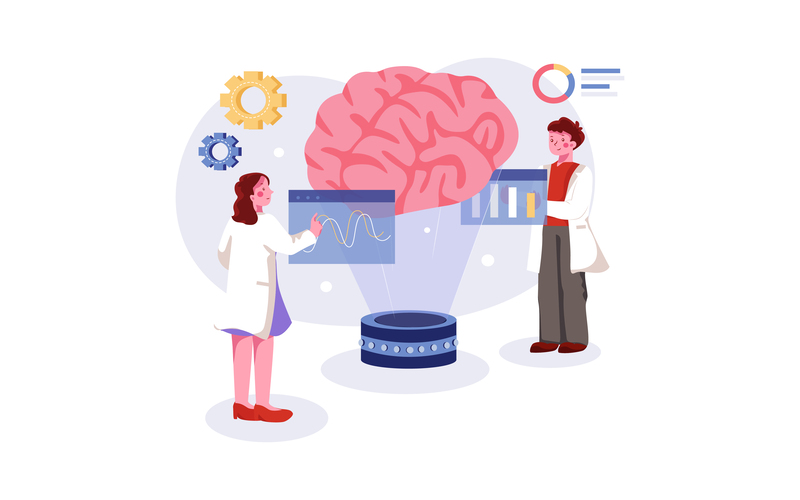
15 Jan Machine Learning and Deep Learning: How Do They Enhance Your Business Intelligence?
In recent years, we have entered the wave of technological innovation, and we have seen how Artificial Intelligence helps us work with vast amounts of data and information. Can you imagine machines learning new tasks on their own? This is already possible thanks to technologies like Machine Learning and Deep Learning.
Within the concept of Artificial Intelligence, there are two specific concepts that are enhancing the comprehension capabilities of systems. On one hand, we have Machine Learning, the algorithm capable of learning from examples (data). On the other hand, there’s Deep Learning, where systems develop the ability to understand this data. In this post, we will explore each of these concepts separately and how they can assist us in our business.
What is Machine Learning?
Machine Learning is a discipline within the field of Artificial Intelligence that uses algorithms to process large amounts of data to detect patterns and trends and make predictions. This learning enables computers to perform specific tasks autonomously, meaning without needing to be programmed explicitly. In Spain, 70% of consumers already shop online, making it essential to develop strategies like Digital Customer Experience through the collection of user data and behaviors.
What is Deep Learning?
Deep Learning is an advanced technique where systems achieve levels of learning in even greater detail. It represents the next step beyond Machine Learning. This system is designed with layers or neural units, which are algorithms that attempt to mimic the functioning of the human brain. Each layer combines its output with that of the other layers to minimize the margin of error as much as possible. Furthermore, Deep Learning begins to integrate distinctly human psychological functions such as memory, reasoning, attention, motivation, and emotions.
Advantages of Machine Learning and Deep Learning in a Business
There are numerous advantages to applying Machine Learning and Deep Learning in a business. Here are some of them:
- Better Customer Service: Through data collection and analysis, organizations gain a clearer understanding of their customers, their interests, and what they seek while browsing the internet. Additionally, this fosters better communication and relationships with customers by registering and interpreting their emotions and opinions.
- Better Decisions: Having the right data helps organizations make better decisions, promoting increased productivity and efficiency. Understanding data, analyzing it, and identifying patterns and links facilitate the development of business strategies that align with the market in which companies operate.
- Optimization of Internal Processes: Machine Learning also learns from the internal data of organizations. It improves productive processes by increasing speed, substantially reducing errors, and optimizing resources.
- Cybersecurity: These technologies ensure that machines are up to date regarding cyberattacks. Considering that most malware uses similar code, Machine Learning can easily prevent repeated attacks.
- Automation of Processes: Automating routines or mechanical tasks that do not add value is a common benefit associated with Artificial Intelligence. With Machine Learning, the machine will learn which processes to handle and, over time, will perfect them and even expand the number of tasks it performs.
Today, most companies are starting to consider using Artificial Intelligence as a way to solve daily problems. Regardless of the industry or the size of the company, implementing processes associated with Machine Learning is an important step in the digital transformation of businesses.
Can we help you take the next steps?



